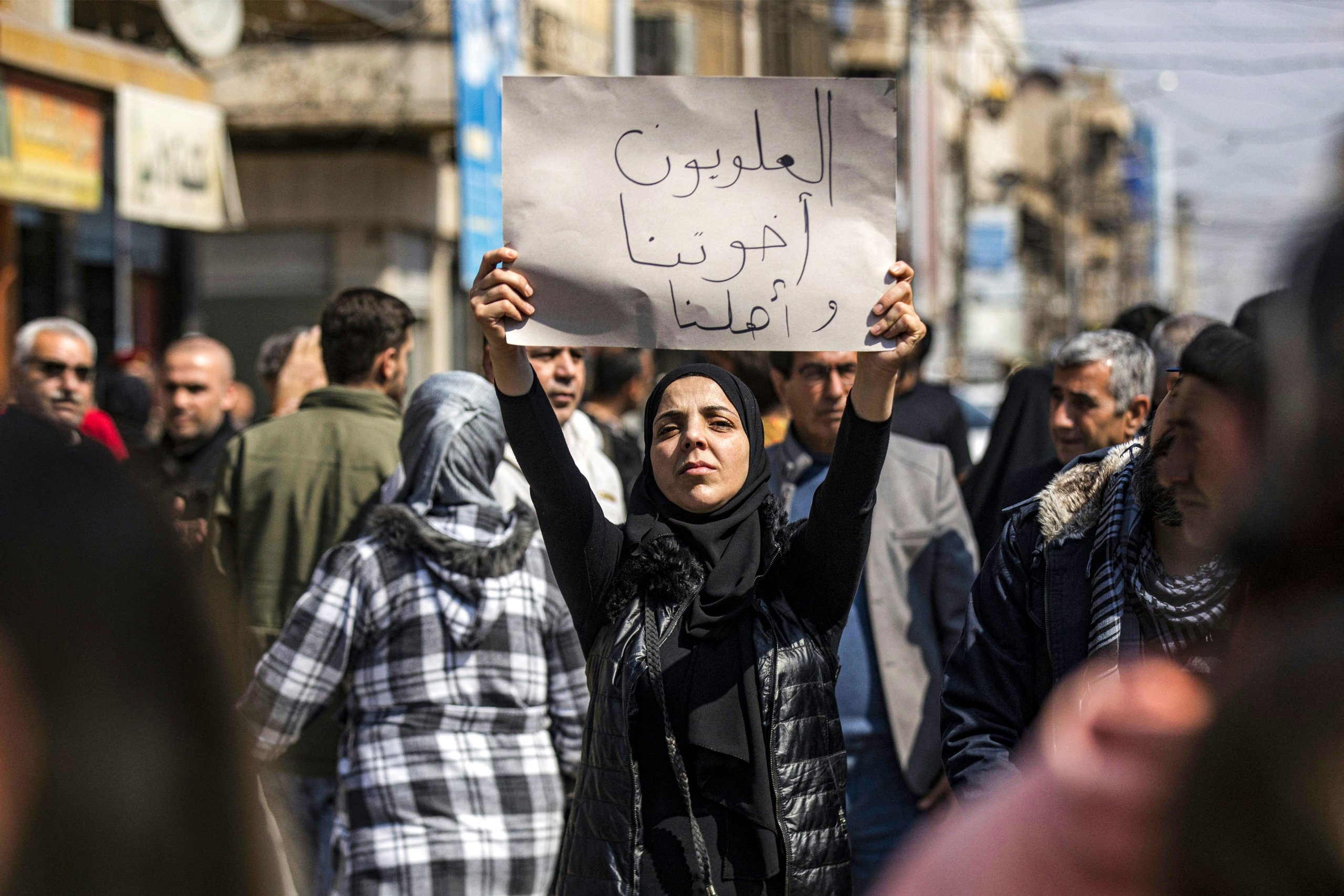The Nusayris were well established in the tenth century and only fled to the mountains to escape persecution in the eleventh. Since then they have had deep and bitter conflict with the dominant Sunni culture on the plain. After attempts to unite with the Isma’ili sect in 900 and 1291 failed, there also has been a history of conflict between these two sects.
In the secular field most Alawis were tribal, only achieving social solidarity in the twentieth century. Until then the four confederations, or constituent tribes, had little hesitation in fighting each other. Large numbers of peasant Alawis joined Les Troupes Speciales under French rule. In the 1940s many also joined the Syrian Social National Party but then moved en masse to the Ba’ath, which seemed strategically better placed to gain power. Both parties stressed a secular identity in which religious nonconformity would not count against them. Unlike the old notable class of sheiks, which begged the French to keep them as a separate political entity, the young upwardly mobile members of the military and the Ba’ath saw that the best opportunity for the community lay in secular Arab nationalism. The rapid growth of an Alawi middle and professional class from the mid-twentieth century, where none existed before, transformed the community into a coherent and economically powerful group and arguably the best educated. Family and tribe, however, still count in patronage networks.
Under Sunni-dominated Syria, the Alawi minority faced discrimination as heretics. However, once Hafez al-Assad, an Alawi, seized power in 1970, group members rapidly gained privileged status. Assad surrounded himself with Alawis, especially stocking them in key state security roles. The Muslim Brotherhood, a Sunni organization, targeted Alawis for violence during the 1970s, but the regime crushed the group in a 1982 massacre.
Alawis maintained their privileged status when Assad’s son Bashar assumed the presidency following his death in 2000. It is important to note that whilst government is dominated by Alawi leaders, there are also Alawis among the opposition. As one human rights activist told the International Crisis Group in 2003, ‘It is not the case of a confessional community that governs; instead it is the case of a group that uses a confessional group to govern.’
